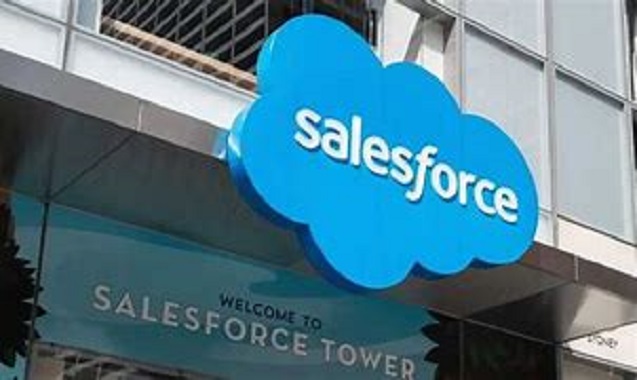Telecom
Telcos Mull Introduction of Different Tariff Plans for Different States

Telecommunications operators in Nigeria are considering shifting from the current national tariff structure to a regional tariff regime that accounts for state-specific operational challenges.

They say this is because the challenges and costs of running their businesses vary significantly from state to state.
Currently, phone companies in Nigeria have a single national tariff for their services, meaning everyone pays the same amount no matter where they live.
However, the telcos argue that this system doesn’t account for the fact that some states have higher operating costs due to issues like attacks on their equipment and multiple taxes.
This proposal was discussed at the 7th edition of the Policy Implementation Assisted Forum (PIAFo) in Lagos, where industry leaders highlighted the need for a pricing model that reflects the ease—or difficulty—of doing business in each state.
Gbenga Adebayo, chairman, Association of Licensed Telecommunications Operators of Nigeria (ALTON), specifically pointed out that the high cost of doing business in some states is a major concern and increases their expenses. He suggested that if negotiating with certain states to reduce these costs is impossible, then the added expense of operating there should be reflected in the service prices in those areas.
“We may have to reconsider the issue of our national tariffs and look at regional tariffs. If you are aware that the cost of doing business is high in a particular state and it’s impossible to negotiate with them, factor the cost of deployment in those areas into the cost of providing services,” he said.
Tony Emoekpere, president, Association of Telecommunications Companies of Nigeria (ATCON), agreed that the current national tariff is unfair because operational costs are not the same across the country.
He believes that states that make it easier for telecom companies to operate should be rewarded, while those that create difficulties should see higher service costs.
Telecom
MTN Nigeria Takes Broadband Services to the Next Level with FibreX Launch

MTN Nigeria has proudly announced the rebranding of its fibre broadband service to FibreX, marking a significant stride in delivering next-generation internet solutions across the nation.

Formerly called MTN Fibre Broadband, FibreX embodies the company’s commitment to providing ultra-fast, reliable, and accessible internet services, aligning seamlessly with Nigeria’s National Broadband Plan (NBP) 2020–2025.
The NBP aims to achieve 70% broadband penetration by 2025, ensuring minimum speeds of 25 Mbps in urban areas and 10 Mbps in rural regions.
“The launch of FibreX reiterates our dedication to supporting Nigeria’s digital transformation journey,” said Egerton Idehen, Chief Broadband Officer, MTN Nigeria. “By enhancing our infrastructure and services, we aim to bridge the digital divide and foster inclusive growth.”
FibreX is set to play a pivotal role in the Federal Government’s initiative to expand the nation’s fibre-optic network by an additional 90,000 kilometers, aiming to increase fibre capacity from 35,000 km to 125,000 km.
FibreX promises ultra-fast and reliable internet connectivity, aiming to meet the diverse needs of Nigerians, from bustling urban centres to remote rural areas.
While the service itself retains its powerful FTTH (fibre to the home) infrastructure, the new name embodies a more modern, relatable, and emotionally resonant brand that is positioned to lead the conversation around what premium internet should feel like.
The new name, FibreX, was adopted to create a more customer-friendly brand. The goal is to educate and excite consumers within home-passed locations (the potential number of premises within a service area that can be connected to an FTTH network) about the benefits of the product.
As Nigeria strides towards a digitally inclusive future, initiatives like FibreX are crucial in bridging the digital divide and fostering nationwide connectivity.
For more information about FibreX and its offerings, please visit www.mtn.ng/fibrex.
Telecom
Salesforce Revolutionizes Business Intelligence with AI-Powered Tableau Next


Organisations today face a data paradox: they need to make fast, intelligent decisions but are overwhelmed by large volumes of often unreliable information. With over 75% of business leaders under pressure to prove data’s value, the demand for trusted, actionable insights has never been greater.
What is agentic analytics
Agentic analytics allows users to collaborate with AI agents to speed up the entire data-to-action process. Instead of relying on static visualizations, analysts can use AI to automate tasks like data preparation and ETL (extract, transform, load processes), freeing them to focus on deeper analysis. Business leaders can ask natural language questions and get instant, reliable answers along with recommended actions. This makes data-driven decision-making easier and more efficient, removing the need for technical expertise and manual effort typical of traditional BI tools.
- Automate repetitive data tasks like data cleaning, transformation, and visualization generation, as well as the execution of complex, multi-step analytical workflows within and across different business areas. This builds on Tableau’s strength in simplifying complex data for users.
- Proactively deliver faster, more comprehensive insights by autonomously detecting hidden correlations, outliers, and trends that might be missed by human observation. This enhances Tableau’s focus on user-driven insights by providing AI guidance.
- Enable more contextual and effective action through natural language summaries, visualisations, and data-driven recommendations, insights delivered where people work with an enterprise-class workflow engine that enables users to kick off automated actions. This extends Tableau’s ability to drive action from data, making it more seamless within the Salesforce ecosystem.
Built on the trusted Salesforce Platform and leveraging the power of Data Cloud, Tableau Next delivers enterprise-grade performance, robust security, and flexible, zero-copy data integration for seamless data connectivity. Tableau Semantics, an intelligent semantic layer, provides a unified understanding of information, ensuring data consistency and accelerating the discovery of critical insights. The built-in workflow engine in Tableau Next seamlessly translates insights directly into actionable steps, dramatically accelerating the time to value. The key differentiator is the native integration with Agentforce, Tableau Next equips humans and AI agents with pre-built analytical skills to rapidly transform data into tangible business value, marking a significant leap forward in data-driven decision-making. It includes:
- Data Pro: Your Intelligent Data Prep Assistant. Instead of users manually cleaning up and changing data using complex steps (like in traditional ETL), Data Pro will give smart suggestions on how to do it and even automatically handle some of the complicated changes, saving time and effort.
- Concierge: Instant Answers in Plain Language. Get immediate, reliable answers to data questions. Sales teams, for example, can simply ask “What are my best sales opportunities?” and receive clear insights with recommended actions.
- Inspector: Proactive Data Monitoring & Insights. Continuously tracks your data for key changes, analyzes trends, and predicts improvements. Service teams can be instantly alerted to drops in customer satisfaction, enabling immediate action.
Ensuring Data Trust and Accuracy:
- Tableau Semantics: Tableau Semantics serves as the semantic layer, providing Tableau Next and Agentforce with a unified understanding of business data. By establishing consistent definitions and context, it enables AI agents to generate accurate and relevant responses.
Boosting Efficiency:
- Marketplace: Allows users to easily share and reuse data analysis components (like data assets, connections, metrics, visualizations, dashboards), saving time and ensuring everyone is working with the same information.
“Tableau Next helps businesses achieve faster, more impactful results with their data,” said Ryan Aytay, CEO of Tableau. “We’re shifting from basic reports to a world where AI is a collaborative decision-making partner. By combining AI agents with trusted data and easy-to-use tools, we’re making data accessible to everyone and transforming the data-to-action process into an automated, proactive, and insight-driven cycle. This empowers users to improve decision-making, boost efficiency, and manage risk more effectively.”
Telecom
Temu and Shein Raise U.S. Prices Amid Trump-Era Tariffs

Chinese-founded e-commerce platforms Temu and Shein have announced upcoming price increases for U.S. customers, citing higher operating expenses due to tariffs imposed during former President Donald Trump’s administration.

These tariffs include a 145% import tax on most goods made in China and the elimination of the “de minimis provision,” which previously allowed goods valued under $800 to enter the U.S. duty-free.
The changes, effective May 2, have disrupted the business models of both companies, known for their ultra-low prices and extensive digital marketing campaigns.
Temu and Shein, which specialize in affordable products ranging from clothing to electronics, have urged customers to shop before the price adjustments take effect.
The companies aim to minimize the impact on consumers while adapting to the new trade rules.
These developments come amid concerns from U.S. lawmakers and business groups about the competitive advantage of inexpensive Chinese goods and the potential entry of counterfeit products through the now-canceled exemption.

 Telecom3 days ago
Telecom3 days agoSalesforce Revolutionizes Business Intelligence with AI-Powered Tableau Next

 Broadcasting3 days ago
Broadcasting3 days agoMultiChoice Brings Easter Home with Dedicated Pop-Up Channel

 News3 days ago
News3 days agoAirtel Smartcash Set to Power Stress-Free Easter with Seamless Cashflow

 E-Business3 days ago
E-Business3 days agoDG NITDA Tasks Africa to Lead the AI Revolution Through Strategic Leadership, Inclusive Innovation

 E-Financial3 days ago
E-Financial3 days agoHow CBEX Operators ‘Enticed’ Victims –SEC

 E-Business3 days ago
E-Business3 days agoGoogle Blocks 5.1Bn Harmful Ads in 2024, Suspends 39m Accounts

 Telecom3 days ago
Telecom3 days agoTemu and Shein Raise U.S. Prices Amid Trump-Era Tariffs

 Broadcasting3 days ago
Broadcasting3 days agoEedris Abdulkareem Teases New Protest Anthem following NBC Ban























